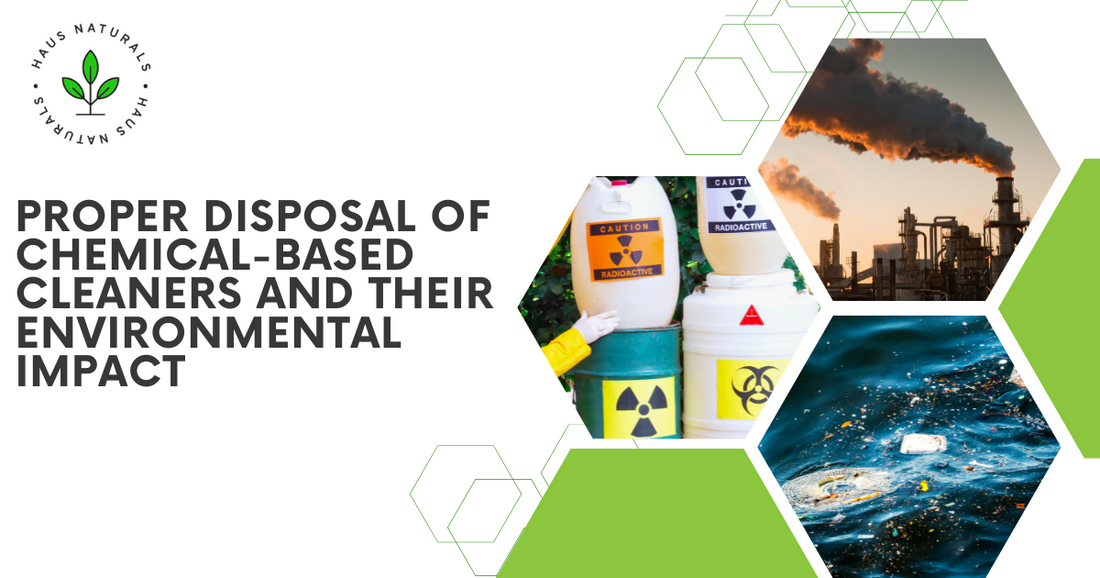In our daily pursuit for cleanliness and hygiene, chemical-based cleaners have become allies. However, it's important to understand the proper disposal methods for these cleaners and the environmental impact they can have. In this blog, we will explore the significance of responsible disposal and shed light on the potential consequences of their usage on our planet.
Firstly, we need to have a clear understanding of chemical-based cleaners. These cleaners are formulated with a wide range of synthetic compounds such as bleach, ammonia, phthalates, and volatile organic compounds (VOCs). While these ingredients are powerful cleaning agents, improper disposal can lead to some serious environmental issues.
With this understanding, we will share with you the list of the potential harm of improper disposal of chemical-based cleaners to our environment.
- Water pollution:
Improperly disposing of chemical-based cleaners down sinks, toilets, or storm drains can lead to water pollution. The toxic substances in these cleaners pose a threat to aquatic life and disrupt the delicate balance of ecosystems.
- Air pollution:
Many chemical-based cleaners release VOCs into the air, contributing to indoor and outdoor air pollution. These compounds can also have negative health effects, such as respiratory issues and allergic reactions.
- Landfill contamination:
Now that we understand these chemicals and their impact on our environment, we can now move to the steps of proper disposal of chemical-based cleaners.
- Read the labels:
Take a moment to carefully read the labels of your chemical-based cleaners. Many products provide specific instructions for proper disposal. Look out for warning signs or symbols that indicate special handling or disposal requirements.
- Reduce consumption:
Minimising the use of chemical-based cleaners is an effective step. Consider exploring natural alternatives or do-it-yourself (DIY) cleaning solutions, which are often safer and eco-friendly.
- Household Hazardous Waste (HHW) collection programs:
Your local waste management authority or municipality may have HHW collection programs. These initiatives provide a safe way to dispose of hazardous materials, including chemical-based cleaners. Remember to store the products in their original containers or clearly labeled containers, and follow any specific guidelines provided by the collection program.
- Community drop-off events:
Many communities organise drop-off events where residents can responsibly dispose of hazardous waste. These events are excellent opportunities to ensure the proper disposal of your chemical-based cleaners.
- Recycling:
Some components of chemical-based cleaners, such as plastic spray bottles, can be recycled. Rinse out the containers thoroughly, remove any labels or caps, and place them in your recycling bin. However, it's important to note that not all cleaners are recyclable, so consult your local recycling guidelines for proper disposal instructions.
Considering these facts, it's essential to prioritise responsible disposal of chemical-based cleaners in our quest for cleanliness and hygiene. By following these recommended disposal methods, we can minimise pollution, protect our natural resources, and create a healthier environment for ourselves and the future generations. Let's take small steps together by reducing our reliance on these products and exploring eco-friendly alternatives. For your cleaning needs, you can get an all-natural and environmentally friendly cleaners here at Haus Naturals.
